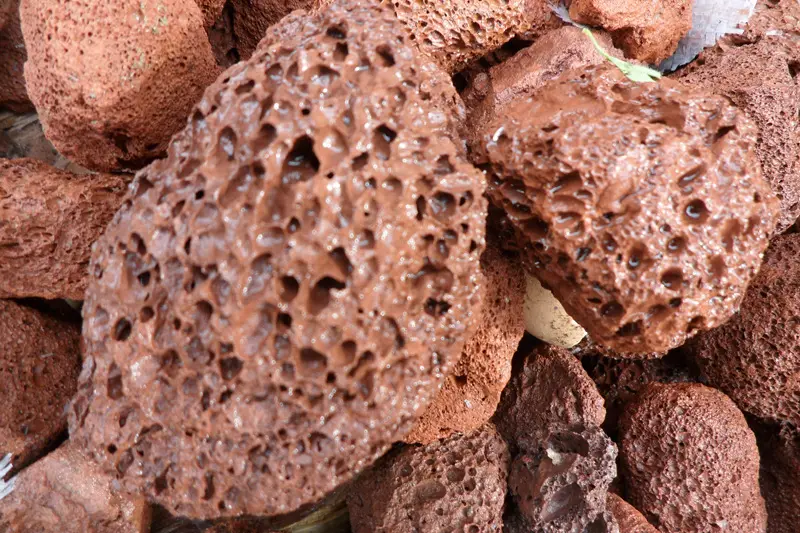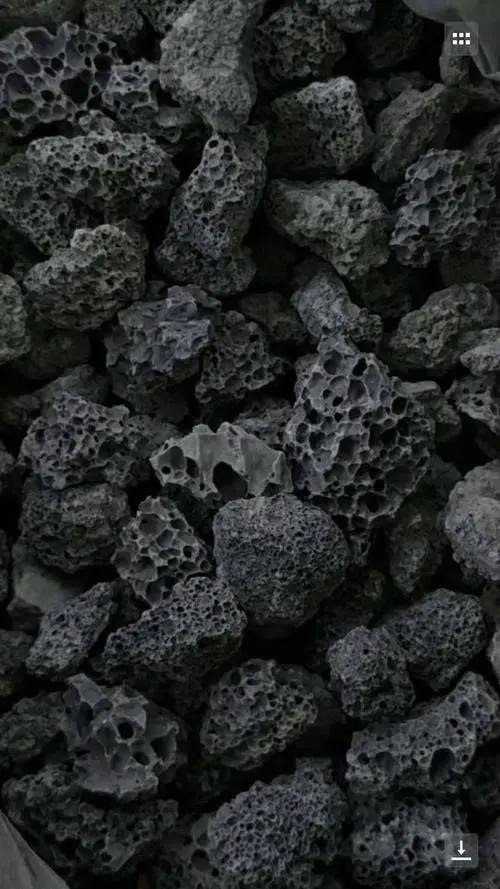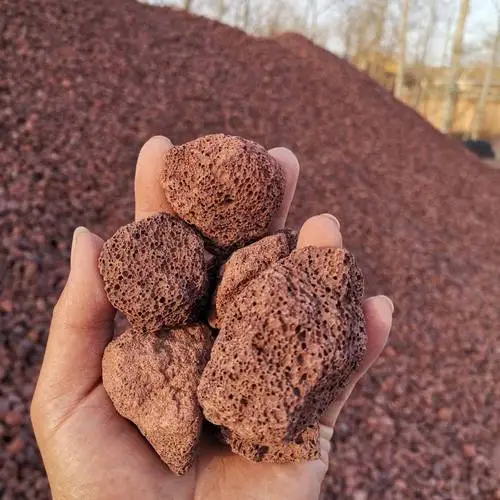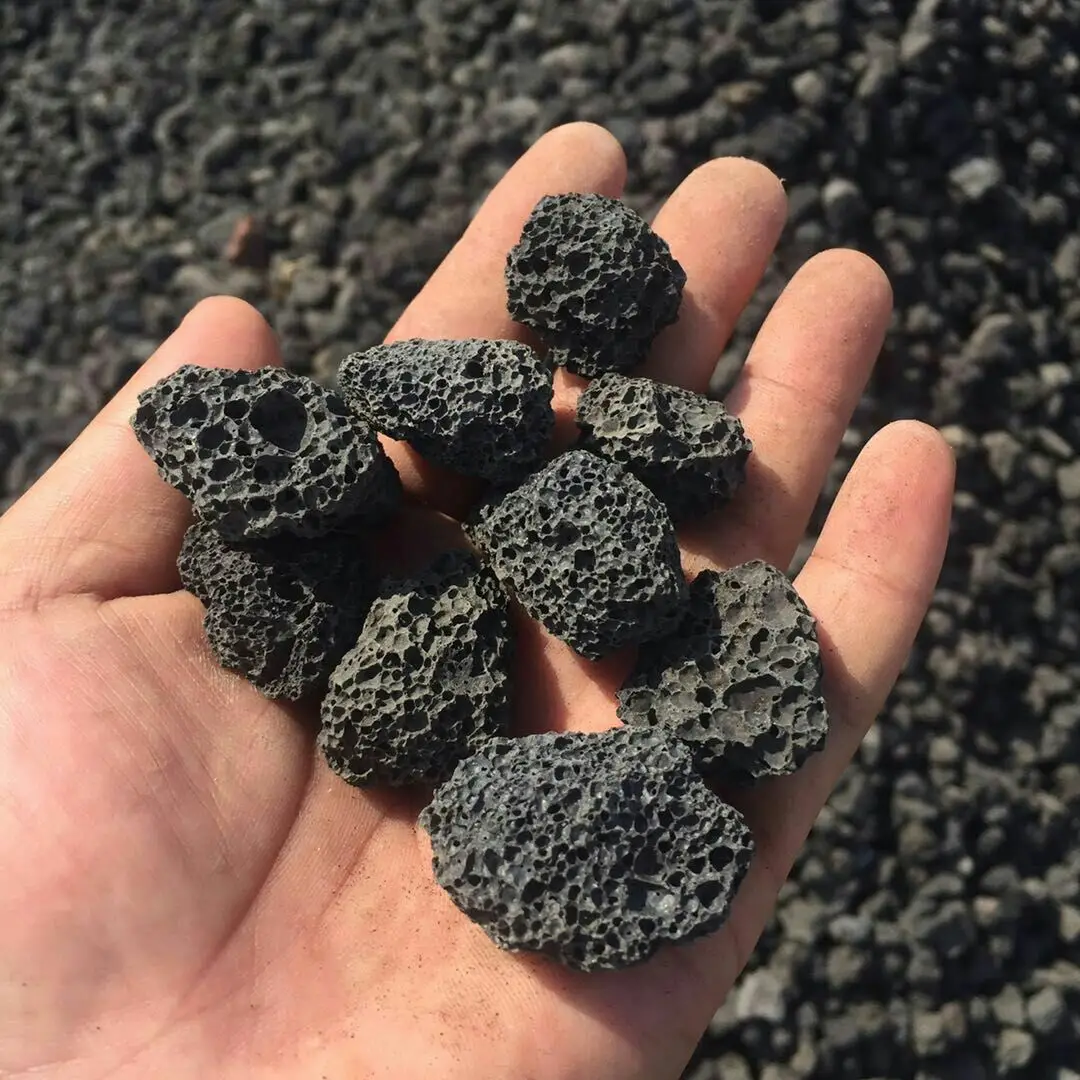
Volcanic stone has high strength, acid and alkali resistance, corrosion resistance and so on.
Volcanic stone, also known as volcanic rock or pumice, is a unique natural material that is formed during volcanic eruptions. It is a type of glassy lava that contains dense pores, which are created by the rapid expansion of internal gas as the magma cools suddenly after being exposed to a sharp reduction in pressure. These pores account for more than 50% of the rock's volume and give volcanic stone its distinctive lightweight and porous appearance. In fact, pumice gets its name from these pores, which also enable it to float on water.

Despite its lightweight and porous nature, volcanic stone is incredibly strong and durable. It possesses excellent heat preservation and insulation properties, making it an ideal material for a variety of construction and industrial applications. Additionally, volcanic stone is known for its sound absorption capabilities, making it a popular choice for acoustic insulation in buildings. Furthermore, it offers exceptional fire protection, as it is resistant to high temperatures and flames.

One of the key advantages of volcanic stone is its resistance to both acids and alkalis, making it suitable for use in harsh chemical environments. It is also highly corrosion-resistant, ensuring its longevity and durability in various conditions. Moreover, volcanic stone is environmentally friendly, as it is free from pollutants, radioactivity, and harmful chemicals. This makes it a sustainable choice for eco-friendly construction projects and manufacturing processes.

In conclusion, volcanic stone, with its unique characteristics and versatile properties, is a valuable natural resource that offers a wide range of applications. From construction and industrial uses to environmental and decorative purposes, volcanic stone continues to be a popular choice for various industries. Its strength, durability, and environmentally friendly qualities make it a sought-after material for those looking for high-performance and sustainable solutions.

Share
-
Volcanic stone has high strength, acid and alkali resistance, corrosion resistance and so on.NewsFeb.26,2024
-
Kaolin is a kind of clay and clay rock dominated by kaolinite group clay minerals.NewsFeb.23,2024
-
Complete range of mica/composite rock sheet/dyed mica.NewsJan.26,2024
-
Factory direct landscaping mulch grinding pine barkNewsJan.24,2024
-
Iron powder is one of the most important metal powdersNewsJan.22,2024
-
Bentonite cat litter is mainly used for making cat litter, which absorbs water quicklyNewsJan.19,2024






